Bringing a new life into this world is a special moment… one that is often followed by vaginal tears, difficulties controlling your bladder, and increased levels of anxiety or even depression, among other things. While it might be uncomfortable to read about such consequences of childbirth—not to mention experience them—they are a common reality for new moms and nothing to be ashamed of or shushed about.
Unsurprisingly, some of the side effects of childbirth are not publicly discussed that often either. But one netizen recently decided to shed some light onto the topic and addressed the female internet users on Threads, asking them about the lesser-known side effects of bringing a child into this world.
Many women replied to the thread, some even sharing their personal experiences, so if you’re interested in learning more about the less joyful side of giving birth, scroll down to find the netizens’ answers on the list below.
Image credits: gf.jewels
#1

Image credits: revmags
#2
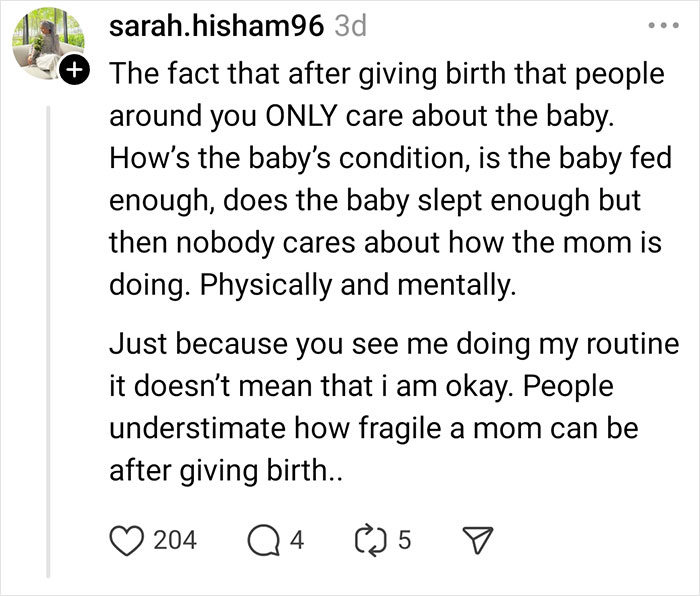
Image credits: storyoflittlepearl
#3

Image credits: pphslp
Nowadays, roughly 385,000 babies are born every day, according to The World Counts. Even as I’m writing this, the number of bundles of joy that have arrived into this world is increasing at an incredible rate… 103,879,131… 103,879,132… 103,879,133. I can’t keep up with the pace.
In most families, they arrive bringing immense joy not only to their parents, but the extended family, and friends, too. Bearing in mind that those people can’t wait to meet the addition to the family, it’s safe to assume that the period that precedes the moment of birth is rather special, too. But the pregnancy, as well as giving birth itself, can be both special and difficult.
#4

Image credits: bonnergail
#5
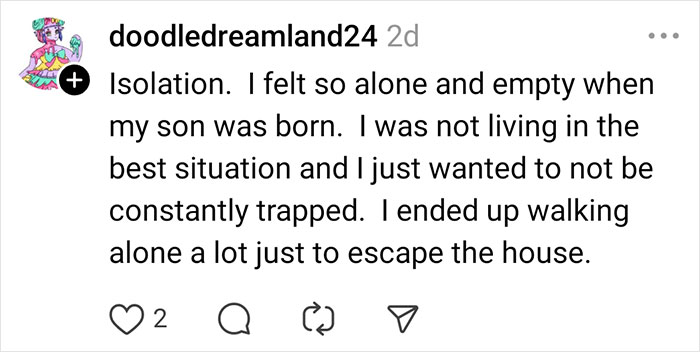
Image credits: doodledreamland24
There are many reasons why childbirth can become difficult for the mother, from excruciating pain to side effects, which are various and abundant, as this list shows. To make matters worse, certain health problems caused by childbirth can stay with the new moms for quite a while.
The UN reports that, according to a recent study, more than a third of women experience lasting health problems after giving birth. Some of the most common ones include pain during sexual intercourse (experienced by roughly 35% of postpartum women), lower back pain (32%), anal incontinence (19%), urinary incontinence (experienced by somewhere between 8-31% of new moms), anxiety (9-24%), depression (11-17%), perineal pain (11%), fear of childbirth (tokophobia) (6-15%), and secondary infertility (11%).
#6

Image credits: faithveloro
#7

Image credits: clhpam2003
#8

Image credits: marielabreche
According to Dr. Pascale Allotey, the Director of Sexual and Reproductive Health and Research at the World Health Organization, the aftermath of childbirth can have a rather long-lasting and seriously detrimental effect on some new moms.
“Many postpartum conditions cause considerable suffering in women’s daily life long after birth, both emotionally and physically, and yet they are largely underappreciated, underrecognized, and underreported,” she was cited saying by the UN. “Throughout their lives, and beyond motherhood, women need access to a range of services from health-care providers who listen to their concerns and meet their needs - so they not only survive childbirth but can enjoy good health and quality of life.”
#9

Image credits: dianemarrart
#10

Image credits: kimallsupauthor
#11

Image credits: krissynlove
When discussing postpartum conditions, Dr. Allotey mentioned emotional suffering for a reason – for many women, it’s not only the physical pain or discomfort they have to deal with long after giving birth.
Studies reveal that up to 45% of new moms report experiencing birth trauma; some even develop PTSD (post-traumatic stress disorder). According to a maternal mental health expert and spokesman for the Royal College of Obstetricians and Gynaecologists in the UK, Patrick O’Brien, after a traumatic experience, postpartum women might have to deal with an array of detrimental feelings.
“Women with trauma may feel fear, helplessness or horror about their experience and suffer recurrent, overwhelming memories, flashbacks, thoughts and nightmares about the birth, feel distressed, anxious or panicky when exposed to things which remind them of the event, and avoid anything that reminds them of the trauma, which can include talking about it," he told BBC.
#12

Image credits: gf.jewels
#13

Image credits: thepreparedmamma
#14

Image credits: gf.jewels
Sadly, studies suggest that as much as 10-20% of all women have negative birth experiences, when it is usually expected to be one of the greatest days of their lives. Unsurprisingly, not wanting to go through it all over again, some might even decide not to have a second child. Other women might choose not to have any children at all, after listening to the horror stories some females go through.
But when women decide to have a baby, even if scared, it might be good for the people around them to know just how fearful they are. A study on the influence of women’s fear, attitudes, and beliefs of childbirth emphasized that women tend to have different levels of fear regarding the final chapter of their pregnancies, and that understanding their attitudes and level of fear can help midwives and doctors tailor their interactions with the soon-to-be moms.
#15

Image credits: naturalannieessentials
#16

Image credits: kayla.ginter
#17

Image credits: astrocatherine
Needless to say, interactions—and support in particular—play a crucial role in women's experience of pregnancy and childbirth. Some research suggests that bringing a child into this world is an experience that generates a sense of empowerment, the benefits of which should be maximized through “physical, emotional and social support for women, enhancing their belief in their ability to birth”.
In addition to that, it’s important to try and help the mom-to-be as relaxed as possible under the given circumstances. According to the Counselling for Maternal and Newborn Health Care handbook, “Helping the woman to be as relaxed as possible and aware of her situation can help minimize the physical pain and emotional distress of labour and birth. Women can be helped with this by receiving adequate care, timely information, comfort, support and reassurance during labour and birth.”
#18

Image credits: storyoflittlepearl
#19

Image credits: gf.jewels
#20

Image credits: mxryxmxndxnxpier
While not all women experience negative emotions or side effects caused by childbirth, it’s important to know that they exist and that many women have to deal with them on a daily basis, sometimes long after their baby enters this world. That is why it’s important not to close one’s eyes to such a reality and make sure to check on the parents, too; it’s not only newborns who need support and tenderness after the day they are born.
#21
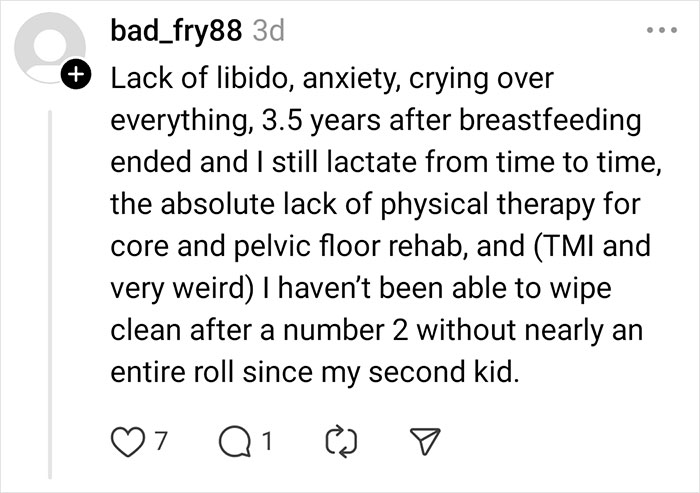
Image credits: gf.jewels
#22
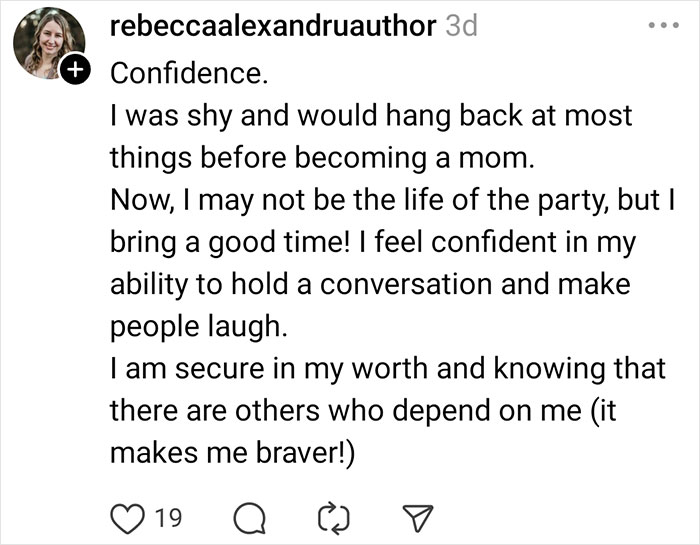
Image credits: rebeccaalexandruauthor
#23
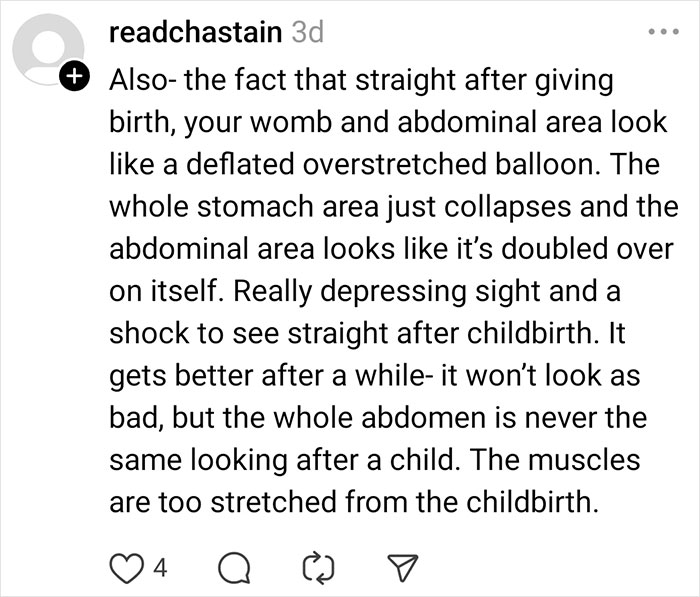
Image credits: gf.jewels
#24

Image credits: gf.jewels
#25

Image credits: magsterrss
#26

Image credits: researchwithlynn
#27

Image credits: ayanaiman
#28

Image credits: delilah_curley_writer
#29

Image credits: gf.jewels
#30

Image credits: stell4ever
#31

Image credits: gf.jewels
#32

Image credits: theintuitivehomeschooler
#33

Image credits: res.ipsa.loca
#34

Image credits: charliekilo
#35
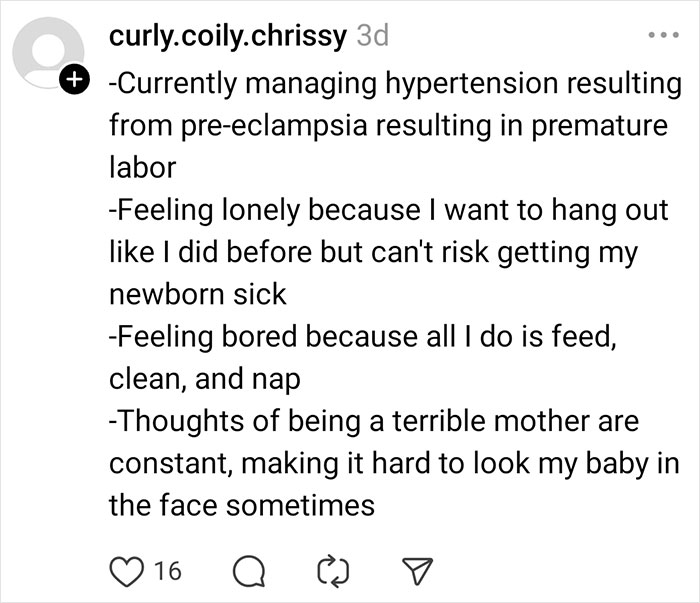
Image credits: gf.jewels
#36
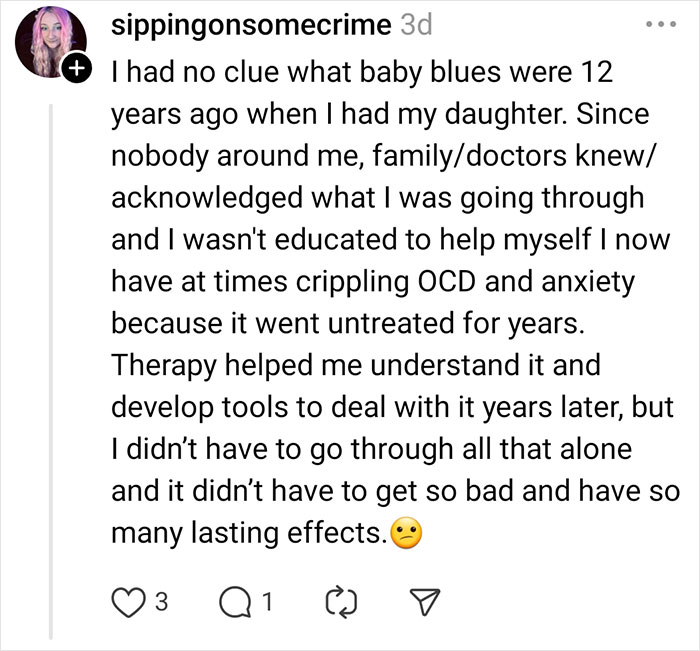
Image credits: sippingonsomecrime
#37

Image credits: iambatman1033
#38

Image credits: peredalily
#39

Image credits: karena_potter
#40
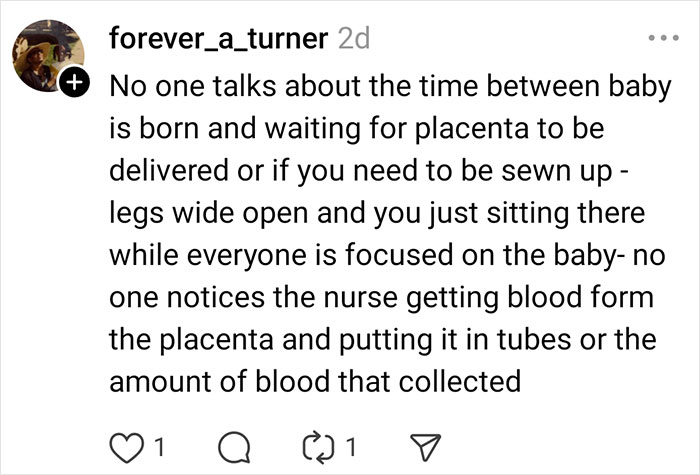
Image credits: gf.jewels
#41

Image credits: gf.jewels








